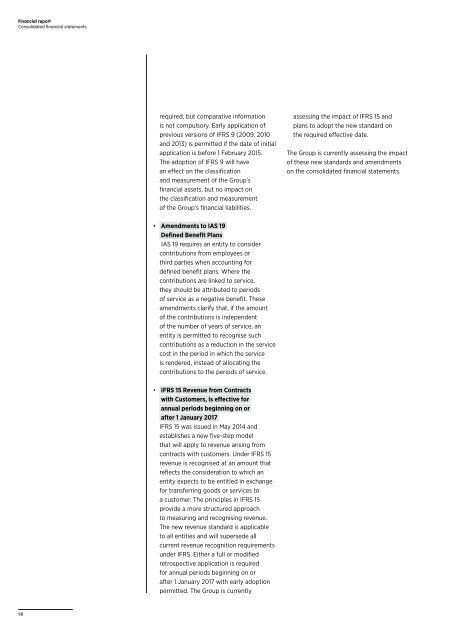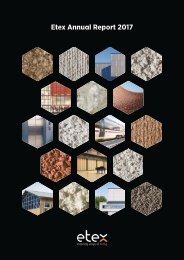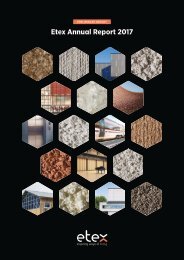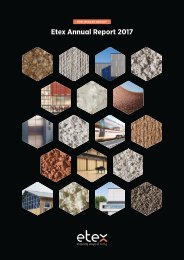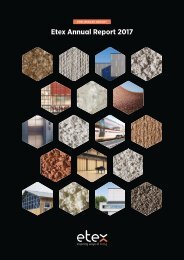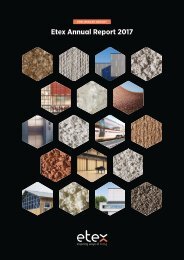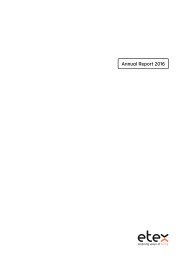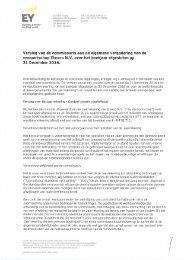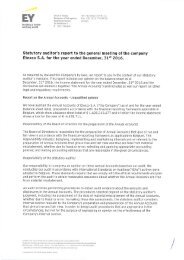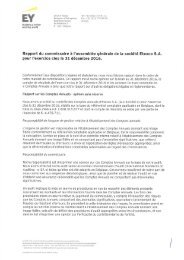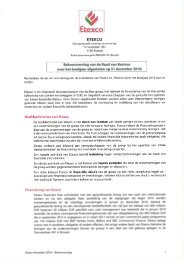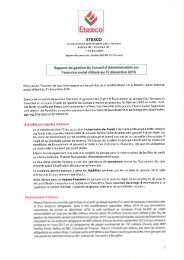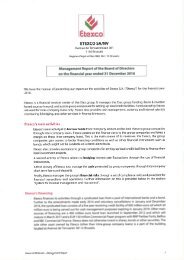Annual Report 2014
This is the 2014 annual report of Etex Group
This is the 2014 annual report of Etex Group
Create successful ePaper yourself
Turn your PDF publications into a flip-book with our unique Google optimized e-Paper software.
Financial report<br />
Consolidated financial statements<br />
required, but comparative information<br />
is not compulsory. Early application of<br />
previous versions of IFRS 9 (2009, 2010<br />
and 2013) is permitted if the date of initial<br />
application is before 1 February 2015.<br />
The adoption of IFRS 9 will have<br />
an effect on the classification<br />
and measurement of the Group’s<br />
financial assets, but no impact on<br />
the classification and measurement<br />
of the Group’s financial liabilities.<br />
assessing the impact of IFRS 15 and<br />
plans to adopt the new standard on<br />
the required effective date.<br />
The Group is currently assessing the impact<br />
of these new standards and amendments<br />
on the consolidated financial statements.<br />
• Amendments to IAS 19<br />
Defined Benefit Plans<br />
IAS 19 requires an entity to consider<br />
contributions from employees or<br />
third parties when accounting for<br />
defined benefit plans. Where the<br />
contributions are linked to service,<br />
they should be attributed to periods<br />
of service as a negative benefit. These<br />
amendments clarify that, if the amount<br />
of the contributions is independent<br />
of the number of years of service, an<br />
entity is permitted to recognise such<br />
contributions as a reduction in the service<br />
cost in the period in which the service<br />
is rendered, instead of allocating the<br />
contributions to the periods of service.<br />
• IFRS 15 Revenue from Contracts<br />
with Customers, is effective for<br />
annual periods beginning on or<br />
after 1 January 2017<br />
IFRS 15 was issued in May <strong>2014</strong> and<br />
establishes a new five-step model<br />
that will apply to revenue arising from<br />
contracts with customers. Under IFRS 15<br />
revenue is recognised at an amount that<br />
reflects the consideration to which an<br />
entity expects to be entitled in exchange<br />
for transferring goods or services to<br />
a customer. The principles in IFRS 15<br />
provide a more structured approach<br />
to measuring and recognising revenue.<br />
The new revenue standard is applicable<br />
to all entities and will supersede all<br />
current revenue recognition requirements<br />
under IFRS. Either a full or modified<br />
retrospective application is required<br />
for annual periods beginning on or<br />
after 1 January 2017 with early adoption<br />
permitted. The Group is currently<br />
98


